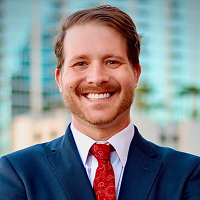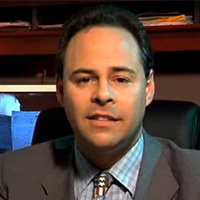 Tampa Reorganization Lawyers, Florida
Tampa Reorganization Lawyers, Florida
Sponsored Law Firm
-
 x
x

Click For More Info:
-
Law Offices of Robert M. Geller, P.A.
807 West Azeele Street Tampa, FL 33606 » view mapBankruptcy Law Attorneys - Hillsborough County Bridging You A Brighter Future
It is our firm's philosophy and goal to give each client the individual attention he or she needs in difficult times. Call for a free initial consultation.
800-811-8031  Robert Geller Tampa, FL
Robert Geller Tampa, FLAttorney At Law - Florida, 1986
Levin College of Law, J.D. - 1985
 Bankruptcy Law Firm
Bankruptcy Law FirmWe have helped thousands of clients make a fresh financial start.
 Contact UsEmail or Call 24/7
Contact UsEmail or Call 24/7Call for initial free consultation, 800-811-8031.
Not enough matches for Tampa Reorganization lawyer.
Below are all Tampa Bankruptcy & Debt lawyers.
Sponsored Lawyers
1-10 of 74 matches
Criminal, Bankruptcy & Debt, Accident & Injury, Business
Stephen Bernhardt has been an attorney since he was 25 years old. Now, nearly a decade later, Bernhardt has extensive trial experience in both criminal and civil law. He began his legal career as a prosecutor, first handling misdemeanor offenses such as DUI, Battery, Possession of Controlled Substance, Violation of Injunction and many others. Bernhardt was quickly moved to a felony division and become the State Attorney’s Office’s representative for the county’s Drug Court Program. In this role, Bernhardt learned many techniques to help individuals overcome addictions as well as the differences between the many rehabilitation establishments throughout Florida. Prior to leaving the State Attorney’s Office, Bernhardt was the lead prosecutor in his division. Bernhardt conducted several jury trials that ended in convictions and sentences of more than thirty years, including a mandatory life in prison sentence. After leaving the State Attorney’s Office, Bernhardt began practicing civil law for one of the largest creditors’ rights firms in the United States. Bernhardt quickly became the lead litigating attorney for the firm’s Florida office and handled countless civil hearings and trials before leaving to start Bernhardt Law, PLLC. Bernhardt Law focuses on the practice areas of Criminal Defense, Personal Injury and Debt Defense. Using the knowledge gained throughout the years, Bernhardt Law is dedicated to making sure each client’s specific situation is handled with the utmost professionalism, attention to detail, and integrity.
(more)Bankruptcy & Debt, Foreclosure, Collection, Credit & Debt, Reorganization
James Elliott is a native of Tampa, Florida. After graduating from Tampa Jesuit High School, he attended the University of Florida where he received a Bachelor of Arts, and then continued his education at the Florida State University where he received a Master of Arts. Mr. Elliott received his Juris Doctor degree from the Syracuse University College of Law, where he served as Articles Editor for the Labor Lawyer Journal, and earned a Certificate of Concentration in Corporate Counsel. Mr. Elliott also earned a Certificate in Financial Management from Cornell University, and was named a Super Lawyer rising star in 2017. He has published several articles in various legal journals around the country, including the American Bankruptcy Institute Journal. Mr. Elliott began his career as a judicial extern with a former bankruptcy judge, Judge Stephen D. Gerling of the Northern District of New York. Mr. Elliott then continued to practice bankruptcy law and consumer protection in Tampa, Florida and joined the McIntyre Thanasides law firm in 2010. Mr. Elliott represents clients through personal and business bankruptcy, as well as out-of-court debt restructurings. Whether representing businesses or individuals, Mr. Elliott takes pride in advocating for his clients’ interest and assisting clients in creating financial plans that meet their particular goals. Mr. Elliott is a member of the Tampa Bay Bankruptcy Bar Association, the Temple Terrace Bar Association and the Florida Bar. In addition to growing up in Tampa and dedicating his career to assisting Tampa Bay area residents, he also raises his family of two children in Tampa. He enjoys volunteering as a youth soccer coach and is the President of the Florida Soccer Club, Spirit of Tampa Bay.
(more)Credit & Debt, Collection, Accident & Injury, Bankruptcy & Debt
Frank Kerney III is a managing partner of The Consumer Lawyers. Frank grew up in central New Jersey before moving to Florida to attend the University of South Florida. After graduation, Mr. Kerney attended Stetson University College of Law where he was inducted into the law school’s honors fraternity and awarded the William F. Blews pro bono service award at graduation. Prior to co-founding The Consumer Lawyers, Frank worked for Morgan & Morgan’s national consumer protection department where he represented consumers across the Untied States in a variety of cases, with a focus on consumer credit reporting and illegal debt collection. Frank has been named a “Rising Star” by Super Lawyers magazine every year since 2016. Only the top 2.5% of lawyers in each state receive this award. In 2020, Frank was named a Top Attorney Under 40 by Law360, and was one of only two Plaintiff’s lawyers to be included in that list. Frank has been interviewed as legal analyst by multiple publications, including Law360, ABC, NBC, and Fox, and stories about his cases have been featured all over the world.
(more)Bankruptcy & Debt, Consumer Protection, Accident & Injury
Octavio “Tav” Gomez is a managing partner at The Consumer Lawyers. Previously he served as the Head of the Consumer Protection Department of Morgan & Morgan. He has represented Thousands of across the Nation. Mr. Gomez has earned a reputation for aggressive and dedicated representation in complex civil litigation. As an attorney, he is constantly striving to become a more educated and informed legal professional, and readily attends legal seminars and conferences to ensure his continuing legal education. Tav Gomez and his consumer team at Morgan and Morgan were recognized as “The Consumer Protection Group of the year” by Law360. Originally from Colombia, South America, Mr. Gomez moved to the United States as a child. He was raised in in Fort Lauderdale, FL and attended Florida State University for his undergraduate studies. After earning his Bachelor’s Degree in Political Science, he went on to earn his Juris Doctorate at the Florida State University College of Law. While attending law school, Mr. Gomez served as an intern with the Agency for Health Care Administration. After graduating law school, Mr. Gomez began working as a state prosecutor at the State Attorney’s office in Tampa, Florida. As a prosecuting attorney, he handled a multitude of felony cases, including habitual felony offender, 10-20-Life cases, grand theft, and trafficking cases. Mr. Gomez moved on from the State Attorney’s office in 2003 to become a named partner with Taracks, Gomez & Rickman, practicing primarily in the area of criminal defense and personal injury. During his tenure at the firm, he handled high profile cases including 1st-degree murder, vehicular homicide, complex mortgage fraud, extradition and tax fraud. Mr. Gomez has also handled civil and administrative cases involving the Federal Trade Commission, the Drug Enforcement Agency and the Internal Revenue Service. Mr. Gomez’s became the National Head of the Consumer Protection at Morgan & Morgan and focuses primarily on Federal Litigation, on the FCRA, FDCPA, TCPA, and other consumer issues. He uses this extensive knowledge and experience in the courtroom, all to the benefit of his clients. Mr. Gomez has developed an invaluable understanding of the discovery phase and trial preparation. He has represented high profile cases in both Federal and State Court. Mr. Gomez has been involved in some of the largest individual settlement agreements in FCRA and TCPA cases around the nation. He has a deep understanding of the policies and procedures employed by most banks and debt collectors and has mastered credit reporting as instituted by Congress in relation to the FCRA. Mr. Gomez is a member of the Florida Bar, the Georgia Bar, The Pennsylvania Bar and numerous Federal Courts throughout the Country. He is fluent in Spanish and has served as lead attorney in more than 60 jury trials and hundreds of bench trials, in both Federal and State Courts. With over 20 years of legal experience, he handles cases with strategic aggressiveness to maximize case results.
(more)Business, Bankruptcy & Debt, Contract, Estate, Intellectual Property
The Hilton Law Group, PLLC is a Central Florida-based law firm offering services in business law.
(more)Bankruptcy & Debt, Foreclosure, Real Estate, Estate
If you are facing overwhelming debt in the greater Tampa Bay Florida area, relief begins by consulting with an experienced bankruptcy attorney at the bankruptcy law firm of Scott A. Rosin. Attorney Scott A. Rosin has assisted thousands of Tampa Bay area clients since 1992. Scott A. Rosin began his career by consumer bankruptcies, for the last 24 years, he has focused exclusively on consumer bankruptcies. Attorney Scott A. Rosin has the experience, knowledge, and skill to guide you through difficult financial circumstances, whether you choose to file for bankruptcy or wish to pursue other debt relief strategies. As a result of attorney Scott A. Rosin’s excellent work for bankruptcy clients and his service to colleagues in the greater Tampa Bay legal community, the bankruptcy firm of Scott A. Rosin Law is recognized as one where clients can obtain sound legal advice regarding their legal financial troubles in Tampa Bay.
(more)Criminal, Bankruptcy & Debt, Accident & Injury, Business
Stephen Bernhardt has been an attorney since he was 25 years old. Now, nearly a decade later, Bernhardt has extensive trial experience in both criminal and civil law. He began his legal career as a prosecutor, first handling misdemeanor offenses such as DUI, Battery, Possession of Controlled Substance, Violation of Injunction and many others. Bernhardt was quickly moved to a felony division and become the State Attorney’s Office’s representative for the county’s Drug Court Program. In this role, Bernhardt learned many techniques to help individuals overcome addictions as well as the differences between the many rehabilitation establishments throughout Florida. Prior to leaving the State Attorney’s Office, Bernhardt was the lead prosecutor in his division. Bernhardt conducted several jury trials that ended in convictions and sentences of more than thirty years, including a mandatory life in prison sentence. After leaving the State Attorney’s Office, Bernhardt began practicing civil law for one of the largest creditors’ rights firms in the United States. Bernhardt quickly became the lead litigating attorney for the firm’s Florida office and handled countless civil hearings and trials before leaving to start Bernhardt Law, PLLC. Bernhardt Law focuses on the practice areas of Criminal Defense, Personal Injury and Debt Defense. Using the knowledge gained throughout the years, Bernhardt Law is dedicated to making sure each client’s specific situation is handled with the utmost professionalism, attention to detail, and integrity.
(more)Car Accident, Motorcycle Accident, Personal Injury, Credit & Debt, Consumer Rights
Attorney Michael “Mike” Ziegler represents consumers and business owners in resolving their difficult debts using bankruptcy, defending collection lawsuits, foreclosure defense, and suing lenders and debt collectors for illegal activities. Mike’s focus is to understand his client’s situation to find the right remedy for them – seeking a solution that is aimed to take the least amount of time, cost, and impact to resolve the problem in front of them
(more)Divorce & Family Law, Bankruptcy & Debt, Estate, Credit & Debt
Immigration, Real Estate, Business, Bankruptcy & Debt
I am multi-lingual with a business background, I have worked in the financial industry for over five years, I bring this experience with me to Yennes Law.
(more)





 Robert Geller Tampa, FL
Robert Geller Tampa, FL Contact UsEmail or Call 24/7
Contact UsEmail or Call 24/7










